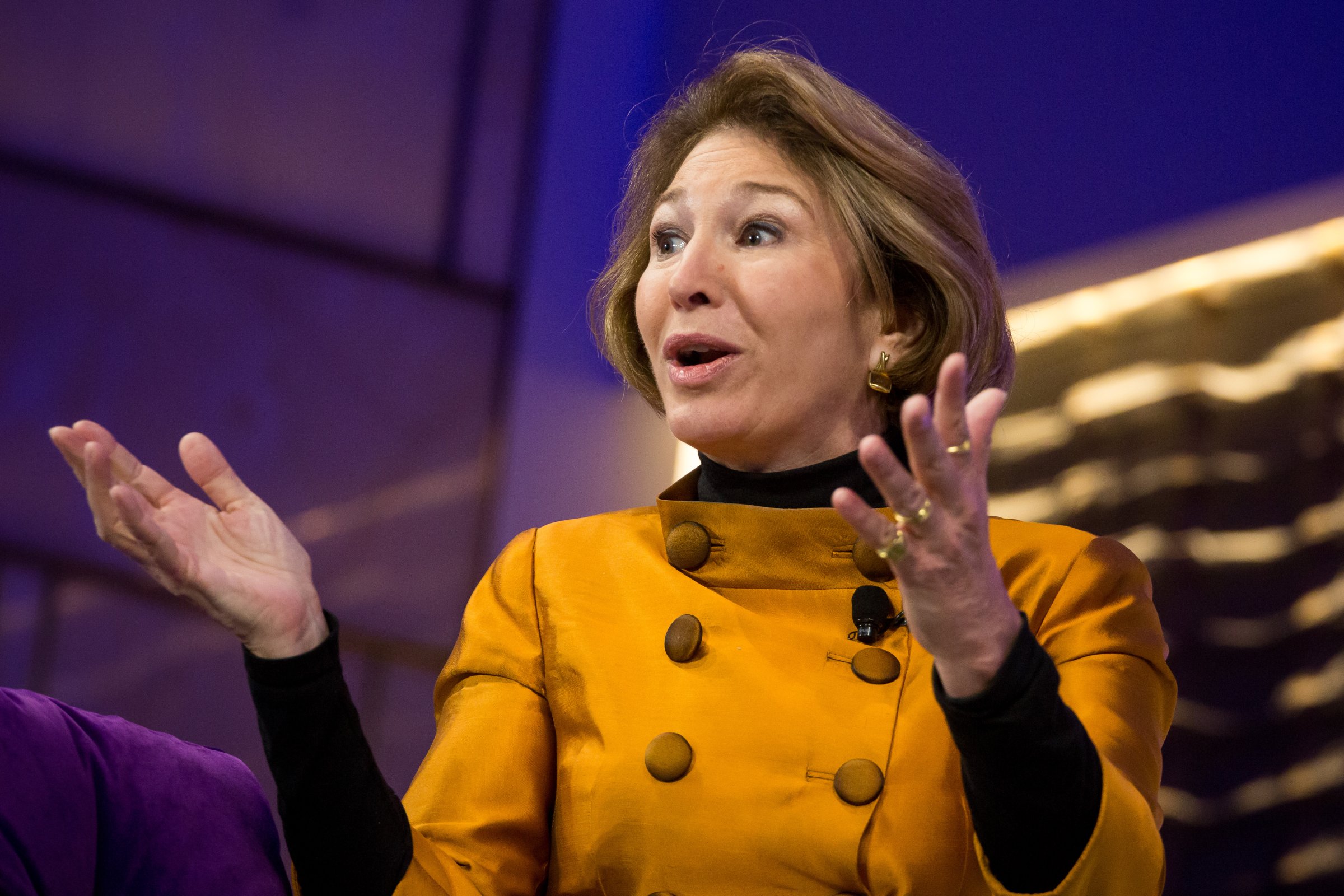
The CEO of New America and former State Department official on her new book about how networks are upending statecraft
You write in The Chessboard and the Web that national security today requires the use of networks, not just traditional rivalries and alliances, which you call “the chessboard.” How does that square with the rise of nationalism?
If Hillary Clinton had been elected, my book would have been aligned with government policy. Instead, the chessboard is resurgent. Donald Trump’s Inaugural Address was a classic statement of chessboard politics.
You write, “The starting point here is not competition between states but the well-being of citizens globally,” which seems like the opposite of “America first.” Yet President Trump, with his millions of Twitter followers, seems to understand the power of networks.
I think he deeply understands–or intuitively feels–the power of direct connections with voters. But like Barack Obama, he is finding there is a big difference between connecting with voters and creating actual networks that effectively let you get things done.
How is Syria an example?
When you have crimes against humanity targeted at a village or tribe or a particular faith, that problem will spread. The survivors have connections in other countries, and they will move. Or they end up in refugee camps, which become nodes of dangerous connections. What happens to human beings is not unconnected to what happens to states.
Perhaps nationalism is a wish for a less complicated world?
When you hear “Make America great again,” that nostalgia is not just for a time when America was more homogenous in terms of jobs, race and gender roles. It may also be a longing for the clear lines of the Cold War — dangerous, but clear.
But surely you’re not saying nations no longer matter?
I don’t think states are going to be less important. But we are going to have to learn to “see in stereo,” as I call it. The world of the chessboard is still there in our relations with Russia, China, Iran — places where we are still playing a straight power game. But we also need to be able to see how we can manage networks strategically for our national security. We have no choice. People are already exploiting networks to threaten us: terrorists, drug cartels, cybercriminals.
The chessboard seeks power over other nations. The web seeks power with other people, right?
Interestingly, among the people who really get the networked world are the military out in the field. They are used to messy stuff. But we need to elevate that to the level of strategy. We have a manual for the strategy of conflict; my book is a manual for the strategy of connection — and not just in foreign policy. Webcraft is for everyone.
Who else gets it?
At the State Department, the women and the young people get it, while the older men might look confused. Women because they never had “power over,” so they had to learn to develop networks; young people because it’s the world they’ve grown up in.
For years you were dean of the Wilson School at Princeton, where you were known for attracting an intellectually diverse faculty. Are you alarmed at the intolerance we’re seeing on campuses like Middlebury and Berkeley?
I was appalled by the Middlebury experience [where protesters attacked a faculty member]. The woman who was injured is a close friend. All of us have to stand up for the belief that we can have civil discourse. Look around at the rest of the world. Try living in a country where they stop talking and start shooting.
More Must-Reads from TIME
- Why Trump’s Message Worked on Latino Men
- What Trump’s Win Could Mean for Housing
- The 100 Must-Read Books of 2024
- Sleep Doctors Share the 1 Tip That’s Changed Their Lives
- Column: Let’s Bring Back Romance
- What It’s Like to Have Long COVID As a Kid
- FX’s Say Nothing Is the Must-Watch Political Thriller of 2024
- Merle Bombardieri Is Helping People Make the Baby Decision
Contact us at letters@time.com